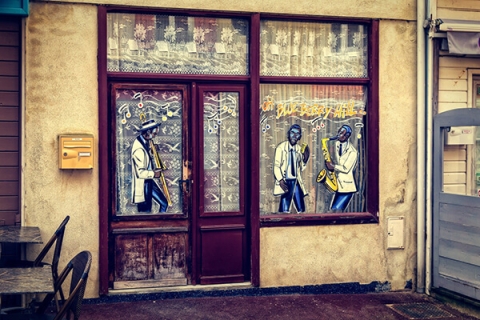

Professor Nicholas Gebhardt comments on Michael Curtiz’s King Creole, starring Elvis Presley
2 min read
In this, possibly the worst twelve months of many people’s lives, there has been plenty of time to catch up on old films.
I’ve been watching a lot of Hollywood musicals, partly because they’re a passion of mine, but also, because I’ve been thinking a lot about this research network and some of the questions we’re interested in asking. One film I watched recently was Michael Curtiz’s King Creole (Paramount, 1958) starring Elvis Presley as a young high school drop-out in New Orleans who discovers a talent for singing, and as he establishes himself in the clubs of the French Quarter, finds himself entangled in a struggle with a local crime boss. It’s based on a Harold Robbins novel and, for my money, it’s the best of Presley’s many musicals. There are also great performances from Carolyn Jones, Walter Matthau, and Vic Morrow.
What makes it interesting, aside from the obvious noir qualities, is the way the film positions jazz between the past and present of its setting. The music hovers, indistinctly, as part of the background to Presley’s realisation of his natural talent as an entertainer; but it also acts as a source of legitimation, along with the blues, for the emergence of Presley’s new rock and roll sound. So…as well as some great Jerry Leiber and Mike Stoller songs (Trouble, for example), for me the film raises the issue of where jazz fits in: to the history of the Hollywood musical, but also within the wider landscape of popular music more generally.
Which brings me back to what we’re trying to do with this network…
This article was written by Professor Nicholas Gebhardt.
